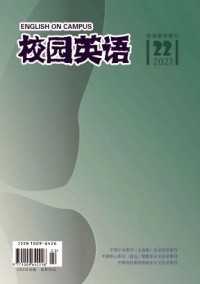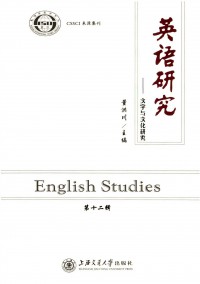英语知识总结

英语知识总结范文第1篇
2021初一下册英语知识点总结有哪些你知道吗?任何一门语言,或者说任何一门学科的学习都是有技巧的。对于英语的学习经验及方法,你知道吗?共同阅读2021初一下册英语知识点总结,请您阅读!
初一下册英语知识点总结Unit 3 Why do you like koalas?
一、词组
want to do sth .想要做某事
want sb to do sth 想要某人做某事
want sth 想要某物
Let sb do sth 让某人做某事
kind of 有几分\种类
a kind of 一种…
…years old …年龄
like to do sth 喜欢做某事 like doing sth
play with … 与...一起玩
during the day 在白天
at night 在夜间
have a look at..看...
one…the other 一个...另一个...
二、句型与日常交际用语
1、-why
do you like pandas?/
-Why dose he like koalas? -Because they’re very cure.
2.Why
do you want to see the lions?
Because they’re …
3、-Where
are lions from?
-Lions are from South Africa.
4、-What
(other) animals do you like? -I like elephants.
other+ 名词的复数.表示没有特定的数量范围
the other+名词的复数表示有特定的数量范围.
5.-Do
you like giraffes?
-Yes, I do./ No, I don’t
初一英语下册知识点整理Unit 3 How do you get to school?
1,疑问词
How 如何(方式)
how long 多长(时间)答语常用“(For/ about +)时间段”
how far多远(距离)答语常用“(It’s +)数词 +miles/ meters/ kilometers” howoften多久(频率)答语常用“Always/ often/ every day/?”或 “次数+时间”等表频率的.状语
How soon多快,多久以后,常用在将来时中。答语常用“in +时间段”
how many多少(接可数名词) how much(接不可数名词)
why为什么(原因) what什么 when何时
who谁 whom谁(宾格)(针对宾语提问也可用who) whose谁的
2,宾语从句要用陈述句语序
3,Stop sb from doing sth
Stop to do 停下来去做其他事
Stop doing 停止正在做的事
4,what do you think of/ about??= how do you like??你认为?怎么样?
5,He is 11 years old.
He is an 11-year-old boy.
6,many students= many of the students
7,be afraid of sth be afraid to do sth worry about be worried about 担心8,play with sb
9,come true
10,have to do sth
11,he is like a father to me (like像)
12,leave离开 leave for 出发前往某地
13,cross 是动词 across是介词
英语初一的知识Unit 4 I want to be an actor.
一、词组
want to be+a/an+职业 想要成为…
shop assistant店员
work with 与…一起工作
help sb (to) do sth/sb with sth 帮助某人做某事
work hard 努力工作
work for 为…而工作
work as 作为…而工作
get..from…从..获得…
give sth.to.sb /give.sb.sth 把某物给某人
in the day 在白天
at night 在夜间
talk to /with 与…讲话
go out to dinners 外出吃饭
in a hospital 在医院
newspaper reporter报社记者
movie actor 电影演员
二、句型
1.-What
do/does+某人+do?
-What do you do?-I’m a student./-What dose he do? He’s a teacher.
2.-What
do/does+某人+want to be?
What do you want to be?-I want to be a teacher.
3.-Where
does your sister work?
-She works in a hospital.
4.-Does
he work in the hospital?
Yes, he does/No, he doesn’t
5.-Does
she work late?
-Yes, she does/No, she doesn’t
6.-英语中询问职业的几种表达方式:
What do/does …do?/What is…?
英语知识总结范文第2篇
2.一百年以后in 100 years
3.免费的 be free
4.通过电脑学习study on computers
5.活到80岁live to be 80 years old
6.在整个世界 in the whole world
7.更少的污染less polution
8.更少的计算机fewer computers
9.在中学be in middle school
10.在上班be at work
11.不/同意 disagree/agree with
12.上大学go to college
13.五年前five years ago
14.空闲时间 free time
15.拉小提琴 play the violin
16.太空站 space statio
17.电脑程序设计师 computer programmer
18.住在公寓里live in an apartment
19.爱上fall in lovewith
20.去滑冰go skating
21.下次next time
22.在周末on weekends/at weekend/on the weekend
23.养宠物keep a pet/pets
24.赢得比赛win the game/match
25.看起来整洁look smart
26.实现come true
27.工作面试job interview
28.穿着校服wear uniforms
29.科幻电影science fiction movies
30.数百hundreds of
31.帮忙做某事help do sth./help with sth.
32.看起来像look like
33.醒来wake up
34.再三的again and again
35.感到厌烦feel bored
英语知识总结范文第3篇
1. personal adj. 私人的;个人的
2. special adj. 特别的;特殊的;专门的specially adv. 特别地;特殊地
3. receive v. 收到;接受
4. mouse n.老鼠 pl. mice
5. snake n. 蛇
6. child n.孩子;儿女pl. children
7. pig n.猪
8. advantage n.有利条件;优点【反义词】 disadvantage n.不利条件;缺点
9. perfect adj. 完美的;理想的
10. rabbit n.兔;野兔
11. company n.伙伴
12. cost v. 花(多少钱);价值
13. asleep adj. 睡着的
14. choose v. 选择 choice n.选择
15. present n. 礼物
16. open v. 打开【反义词】 close v. 关闭
17. instead adv. 代替;而不是
18. enter v. 参加;进入
19. nearly adv. 几乎
20. winner n.胜利者
21. interested adj. 感兴趣的
22. encourage v. 鼓励
23. progress n. 进步;前进
24. suggest v. 建议;提议 suggestion n.建议
25. besides prep. 除……之外
26. mention v. 提及;说起
27. drive v. 开车;驾驶 driver n. 驾驶员
【短语小结】
1. fall asleep 入睡
2. rather than 胜于
3. give away 赠送;分发
4. the Olympics奥林匹克运动会
5. the Olympic Committee 奥委会
6. take an interest in 对……感兴趣
7. make friends with 与……交友
8. photo album 相册
9. good idea 好主意
10. interesting / friendly enough 足够有意思/足够友好
11. on one’s tenth birthday 在某人十岁生日的时候
12. make a meal 做一顿饭
13. take (good) care of sb. = look after sb. very well (好好)照顾某人
14. at night 在晚上
15. all day 整天
16. not ... at all 一点儿也不;根本不
17. make sb. happy 使某人开心
18. gift giving 送礼
19. someone else 别人
20. for example 例如
21. make progress 取得进步
【句子运用】
1. Why don’t you get her a camera? Why don’t you ...? 虽然在形式上是个疑问句,但却常用来表示一种建议,意为“你为什不……?”。例如:
Why don’t you come and see the doctor? 你为什么不来看医生呢?
Why don’t you go there tomorrow? 你为什么不明天去那里呢?
Why not ...?可以看作是Why don’t you ...?的省略形式,语气比较婉转,后接动词原形。例如:
Why not go to school by bus? 你为什么不乘公共汽车上学?
接受用这种方式提出的建议时,常用Good idea! / That’s a good idea! / OK. / All right.等作答。拒绝用这种方式提出的建议时,用No, thanks.等作答。
Why didn’t you ...?用来询问一件事本该做而实际上没有做的原因,说话人含有责备的口气。我们往往用because ...来回答。例如:
―Why didn’t you attend the meeting? 你为什么不出席会议?
―Because I was ill. 因为我病了。
2. How about some tennis balls? / What about a watch?
How / What about...?意为“……怎么样;如何”,常用来询问、了解情况或征询对方的看法、意见或建议,后接名词、代词或动词的-ing 形式。例如:
How about going to the cinema with me? 同我一起去看电影怎么样?
What about something to drink? 来点儿喝的怎么样?
The boys went to the cinema. What about the girls? 男生去看电影了,女生呢?
3. The movie was boring. I fell asleep half way through it.
fall asleep 与go to bed 用法区别:
fall asleep 意为“睡着;入睡”。 例如:
He was just falling asleep when there was a loud knock at the door. 他正要睡着时就有人大声敲门。
The old man sat in his chair, closed his eyes and fell asleep. 老人坐在椅子上,闭上眼睛就睡着了。
go to sleep 或get to sleep 也可以表达同样的意思。例如:
Finally the children went to sleep. 最后孩子们睡着了。
go to bed 意为“就寝”,强调“上床睡觉”这个动作。例如:
He usually goes to bed at 10 o’clock in the evening. 他通常晚上十点钟上床睡觉。
I went to bed too late last night. 昨晚我睡得太晚了。
4. In the USA, some people ask their families and friends to give money to charity rather than buy them gifts.
rather than 意为“而不是”,用来连接两个并列的成分,如名词、代词、形容词、动词的-ing 形式等。例如:
These shoes are comfortable rather than pretty. 这些鞋不好看,但穿起来很舒服。
I’d like to go in summer rather than in winter. 我想夏天去,不想冬天去。
I always prefer getting up early rather than going to school without breakfast. 我总是宁愿早起床,而不愿意不吃早餐就去上学。
I decided to write a letter rather than make a phone call. 我决定写信,而不打电话。
5. We should try to make progress before the Olympics.
make progress 意为“进步;取得进展”。progress 是不可数名词,没有复数形式。例如: Lucy is not making much progress at school. 露西在学校进步不大。
We are glad that he has made such good progress. 他取得这样大的进步,我们感到高兴。
6. Have you ever heard of the Beijing Speaks English program?
hear of 意为“听说;得知”,指间接听到某人或某事的一些情况,其后可接名词或动词的-ing形式。例如:
I have never heard of that place. 我从来没有听说过那个地方。
He heard of her coming and waited there the whole morning. 听说她要来,他便在那儿等了整整一个上午。
7. If you look hard enough, you’ll find a good way to learn English better.
句中的enough 是副词,意为“足够地;充分地”,修饰副词或形容词时,应位于其后。例如:
This book is easy enough for a
six-year-old child to read. 这本书内容浅显,六岁的孩子就能看懂。
I can’t see clearly enough. 我看得不够清楚。
此外,enough 作副词时,还可修饰动词。例如:
Have you played enough? 你玩够了吗?
enough 还可作形容词,用来修饰名词。这时enough可放在名词前面,也可放在名词后面。例如:
We have enough money / money enough to buy a car. 我们有足够的钱来买一辆汽车。
way 意为“方法”,后接“of + 动词的-ing 形式或动词不定式”,意为“……的方法”。 例如:
That is the best way of doing it. 那是做这件事的最好方法。
英语知识总结范文第4篇
[第一类] 名词类
1. 这些女老师们在干什么?
[误] what are the woman teachers doing?
[正] what are the women teachers doing?
[析] 在英语中,当一名词作定语修饰另一名词(单或复数形式)时,作定语的名词一般要用其单数形式;但当man,woman作定语修饰可数名词复数形式时,要用其复数形式men,women.
2. 房间里有多少人?
[误] how many peoples are there in the room?
[正] how many people are there in the room?
[析] people作“人、人们”解时,是个集合名词,其单复数同形。
3. 我想为我儿子买两瓶牛奶。
[误] i want to buy two bottle of milk for my son.
[正] i want to buy two bottles of milk for my son.
[析] 表示不可数名词的数量时,常用“a / an或数词 +表量的可数名词 + of + 不可数名词”这一结构, 其中当数词大于1时,表量的可数名词要用其复数形式。
[第二类] 动词类
4. 你妹妹通常什么时候去上学?
[误] what time does your sister usually goes to school?
[正] what time does your sister usually go to school?
[析] 借助助动词do(或does)构成疑问句或否定句时,句中的谓语动词用其原形。
5. 琳达晚上经常做作业,但今晚她在看电视。
[误] linda often do her homework in the evening,but this evening she watching tv.
[正] linda often does her homework in the evening,but this evening she is watching tv.
[析] 在初一英语学习阶段,我们接触到了两种主要时态:一般现在时和现在进行时。一般现在时表示经常的或习惯性的动作,常和often,usually,sometimes 等时间状语连用。在一般现在时的句子中,若主语是第三人称单数,谓语动词要用其第三人称单数形式。现在进行时表示现阶段正在进行或发生的动作,现在进行时由be(am / is / are) + ving形式构成。
6 这双鞋是红色的。
[误] this pair of shoes are red.
[正] this pair of shoes is red.
[析] 在shoes,trousers,gloves,glasses等表示成双成对的衣物或工具名词前用pair(表计量)修饰时,谓语动词的形式由pair的单复数形式来决定。
[第三类] 代词类
7. 这张票是她的,不是我的。
[误] this is hers ticket. it’s not my.
[正] this is her ticket. it’s not mine.
[析] 物主代词有形容词性物主代词和名词性物主代词之分。形容词性物主代词之后一定要接名词,而名词性物主代词之后不需接任何词。
8. 吴老师教我们英语。
[误] miss wu teaches our english.
[正] miss wu teaches us english.
[析] teach sb. sth.中的sb.作teach的宾语,因此当sb.为人称代词时要用其宾格形式。
[第四类] 介词类
9. 你能找到这个问题的答案吗?
[误] can you find the answer of this question?
[正] can you find the answer to this question?
[析] 英语中用“the answer to …”表示“……的答案”。类似结构还有the key to the door,the way to the zoo等。
10. 格林先生星期六上午来这里。
[误] mr green will come here in sunday evening.
[正] mr green will come here on sunday evening.
[析] 表示在上午、下午等时,介词要用in;而表示在具体的某天上午、下午时,介词要用on.
11. 那个穿着红裙子的小女孩是我们老师的女儿。
[误] that little girl on a red skirt is our teacher’s daughter.
[正] that little girl in a red skirt is our teacher’s daughter.
[析] 用介词表示“穿戴衣物”时,只能用in,其他介词没有此用法。
[第五类] 副词类
12. 莉莉,你为什么不回家呢?
[误] lily,why don’t you go to home?
[正] lily,why don’t you go home?
[析] come,go 等后接here,there,home等地点副词时,地点副词前不加to。
[第六类] 连词类
13. 我喜欢语文和英语,但我不喜欢体育和历史。
[误] i like chinese and english,but i don’t like p.e.and history.
[正] i like chinese and english,but i don’t like p.e.or history.
[析] 在肯定句中并列成分之间用and来连接;而在否定句中,并列成分之间的连接需用or。
[第七类] 冠词类
14. 乘飞机去北京花了史密斯一家人一个小时。
[误] it takes smiths a hour to go to beijing by a plane.
[正] it takes the smiths an hour to go to beijing by plane.
[析] 1.表示“……一家人”用结构“the + 姓氏复数”;
2.our 一词的第一个字母不发音,它是以元音音素开头的,所以“一小时”要用 an hour;
3.用介词by表示“乘坐”某种交通工具时,交通工具名词前不加任何冠词。
[第八类] 句法类
15. ――你不是学生吗? ――不,我是学生。
[误] ――aren’t you a student? ――no, i am.
英语知识总结范文第5篇
— Do you see those people on the little sandy island?
— Yes, they _______ handkerchiefs for the last half hour. I wonder why.
A. were waving B. waved
C. had waved D. have been waving
【正确答案】D
高考考点
考查现在完成进行时。
详细解析
这个挥手帕的动作是在半小时前开始的,然后一直在挥,一直挥到了说话的这个时候,所以我们用现在完成进行时强调一个动作的持续。
A选项为过去进行时,B选项为一般过去时,C选项为过去完成时,这三个时态都是和过去有关,和现在无关。
题干中出现last或者是last half hour,recent等这类词的话,我们一般都会选择现在完成进行时。故本题正确答案是D。
2名词性从句
The information could be helpful to ____ will take over the job.
A. those B. who
C. whoever D. anyone
【正确答案】C
高考考点
考查名词性从句。
详细解析
名词性从句包括主语从句、表语从句、宾语从句和同位语从句。此题考的就是介词to后的宾语从句,whoever在从句中作主语。
A、D两个选项需要在后面加上who;
B选项是who在名词性从句中表示疑问。
eg. Who will take over the job has not been decided yet.
故本题正确答案是C。
3虚拟语气和情态动词
— David, we went to Lake Geneva for the weekend.
— That _______ a very nice change. I wish I had gone there.
A. must be B. must have been
C. could be D. could have been
【正确答案】B
高考考点
考查情态动词。
详细解析
must表推测,“肯定……”,must be表示对现在和将来事实的推测;must have been表示对过去事实的推测。
这里表示一个肯定的推测,又因为是上个周末的事情,说明这件事情已经发生了,故选B;C选项could“可能”,表示轻微的怀疑或委婉的陈述看法,
eg. His story could be true, but I hardly think it is.
他所说的这个故事可能是真的,但是我基本上不相信;
D选项could have done是虚拟语气,表示“过去本能够做某事却未做”,
eg. You could have done better, but you didn’t try your best.
你原本是可以做的更好的,但是你并没有尽自己的努力。
4代词
Knowledge begins to increase as soon as one individual communicates his ideas to _______ by means of speech.
A. other B. another
C. the other D. an other
【正确答案】B
高考考点
考查代词。
详细解析
other用作代词时,意为“另一个;其他的人(东西)”,不单独使用:the other,the others,others;another用作代词时,表示没有具体所指的“另外一个”。
eg. One person may like fishing, while another may prefer hunting.
一个人可能是喜欢钓鱼,而另一个可能喜欢打猎;
the other表示“两者中的另一个”,表示特指;D选项没有这种用法。故本题正确答案是B。
5非谓语动词
Almost every one of the graduates wants to deliver the keynote speech at the graduation ceremony. For the speaker, _______ is an honour.
A. invited B. being invited
C. be invited D. inviting
【正确答案】B
高考考点
考查非谓语动词。
详细解析
A选项invited是过去分词不能充当主语;
C选项be invited不是非谓语形式;
D选项语态错误,应该用被动。
故本题正确答案是B。
遇到动词要考虑四点:
① 先判断是谓语还是非谓语;
② 主语;
③ 主语和非谓语动词的主/被动关系;
④ 非谓语动词与谓语动词的时间关系。
eg. Being exposed to the sun for too much time will do harm to one’s skin.
在太阳下暴露太久对皮肤有害。
eg. The girl’s being educated in a good environment is what her parents have expected.
这个女孩在一个良好的环境中受到教育是她父母所期望的。
Today’s college is appropriate as a setting for a society _____ its members must acquire and manage knowledge from a wide variety of sources.
A. which B. so that
C. where D. of which
【正确答案】C
高考考点
考查定语从句。
详细解析
本题考查关系副词where引导的定语从句,修饰先行词college,where在定语从句中作地点状语。
A选项which是一个关系代词,只能充当主语或宾语;
B选项so that“为了……”,引导目的状语从句,在这里逻辑不对;
D选项of which是“介词+关系代词”结构,先行词college放到定语从句中,应该是说“in the college”,所以这个介词应该用in。
故正确答案为C。
7动词
When problems such as energy crisis, pollution and population explosion _____, people are asked to share the bitterness and endure the hardship.
A. are arisen B. arise
C. arising D. arisen
【正确答案】B
高考考点
考查动词。
详细解析
从题干可知when引导的时间状语从句中缺少谓语动词,故排除C、D两项;
arise“出现、发生”,是不及物动词,无被动语态。故正确答案为B。
8状语从句
They didn’t want to admit to any shortage of food _____ it might reveal a weakness to be exploited by their enemies.
A. in order that B. or else
C. but for D. for fear that
【正确答案】D
高考考点
考查状语从句的连词。
详细解析
A项in order that引导目的状语从句;
B项or else“否则”在此处用句意不通;
C项but for表示“如果没有,要不是”,它往往用在虚拟语气中;
D项for fear that也引导目的状语从句,但它表示“生怕某种不好的事会发生”。
eg. Shut the window for fear that it may rain.
把窗关起来,以防下雨。
根据句意可知,他们不愿意承认食物短缺,是因为他们害怕被敌人知道,然后利用他们的这个缺点。
故正确答案为D。
9固定搭配
Without solutions _____ the gap between the rich and the poor, there can be no “harmonious society”.
A. of B. for
C. to D. on
【正确答案】C
高考考点
介词的用法。
详细解析
solution to…“解决……的方法”,为固定搭配,故正确答案为C。接下来我们就来看一下还有哪些名词后面跟介词to。
【access】have access to有通道/有使用/有见到(某人/某物的机会或权利)
【answer】answer to对……的回答
【approach】approach to sth./ approach to doing sth.做某件事情的方法
【attitude】attitude to sth.对待……的态度
【contribution】make contributions to sth.对……做出贡献
【damage】do damage to sth.对……造成损坏、破坏
【devotion】devotion to sth.对……的奉献
【entrance】entrance to某地方的一个入口
【introduction】introduction to sth.对……的介绍
【limit】the limit to sth.对……的一个限度/限制
【objection】the objection to对……的反对
【reaction】reaction to sth.对……东西的反应
【response】response to sb./sth.对……人(或物)的回答/回复
10主谓一致
— _____ five hundred dollars a big sum to a Chinese family?
— I’m afraid not.
A. Is B. Are C. Were D. Will be
【正确答案】A
高考考点
主谓一致。
详细解析


